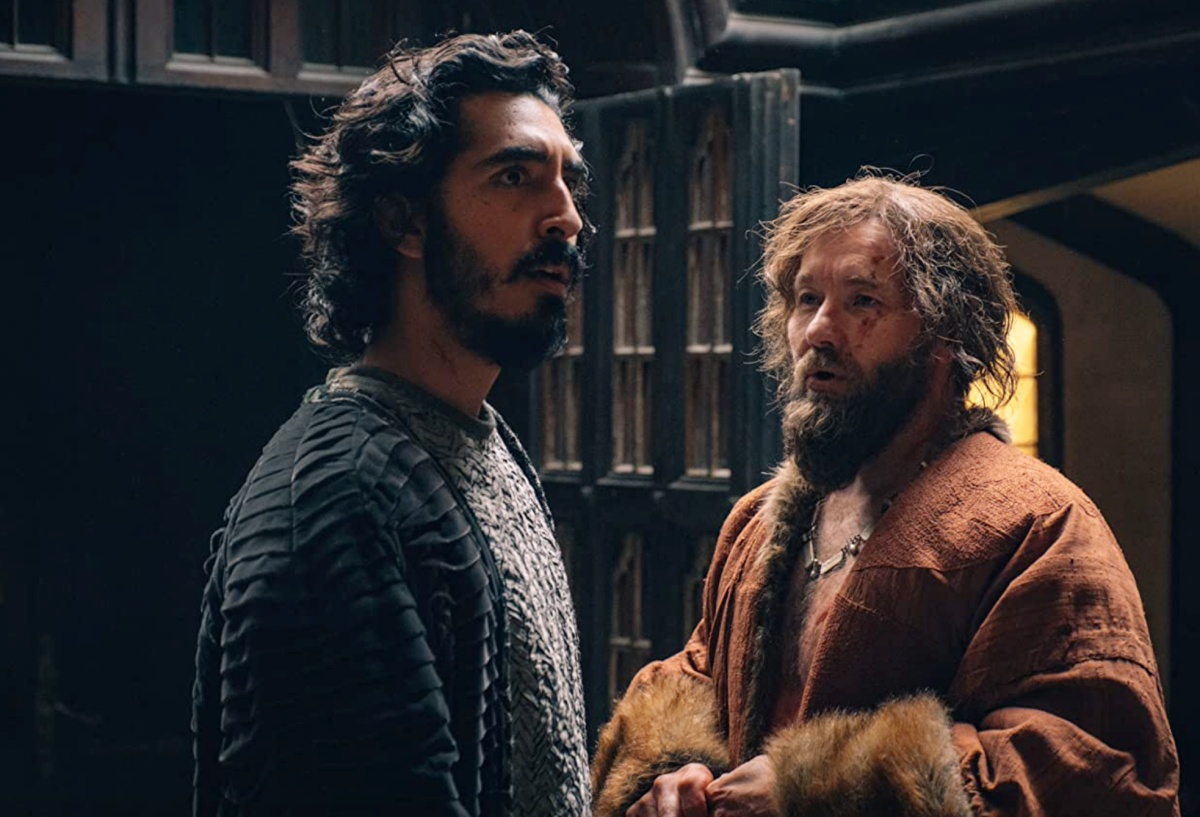The Delectably Kinetic Ending of ‘The Green Knight’

A great fantasy film is like that first day of wellness after coming out of a head cold; you normally don’t think about it often, but when it does rear its head, the highest degree of gratitude is quick to follow.
Last year alone saw the likes of Barbie, Wonka, and Dungeons & Dragons: Honor Among Thieves join the ranks of top-notch fantastical cinema, but if we widen the lens to the greatest of this decade, you’d be hard-pressed to name a peer of 2021’s The Green Knight, the Arthurian medieval epic brought to life on the big screen by one David Lowery, whose sensual and thematic evocation rank it among one of A24’s finest features.
And with a closing scene as ambiguous as this one, the ideas that The Green Knight builds right up until that moment have even more of a conversational springboard than it may have had otherwise. Let’s honor that, shall we?
How does The Green Knight end?
In the final stretch of The Green Knight, Gawain reluctantly kneels before the titular entity in his chapel and awaits his decapitation, but dodges out of the way and runs off before it can happen. He returns home, and is welcomed back by the kingdom and his family, eventually inheriting the crown of his uncle Arthur prior to his death. He marries a noblewoman, having abandoned his lover Essel after she gives birth to his son (who dies in battle later in life), and generally goes on to be a rather useless king, with his reign culminating in a siege on his castle that leaves Gawain—now abandoned by his kingdom and family—completely helpless. He removes the magic girdle from his waist, and his head falls to the floor.
We cut back to the chapel and learn that everything that just transpired was something that Gawain himself simply envisioned. Still kneeling, he removes the girdle and tells the Green Knight that he’s ready. The knight smiles, offers his praise for Gawain’s bravery, and says, “Now, off with your head.”
The Green Knight ending analysis
Now, there’s two specific layers to this ending that one must parse before really digging into the conversational meat of it all; namely, did Gawain die or not, and assuming he did (which is what most would probably infer), in what way does his death read as a narrative triumph?
Thematically, The Green Knight effectively spends its whole runtime pitting paganism, nature, and the unstoppable agents of the earthly against the hubris of mankind, which manifests in such forms as castles, honor, glory, and other contrivedly fragile enterprises. But more importantly, it questions through that lens exactly where humans—fundamentally born of nature—truly belong at this point; are we really, honestly, genuinely charged with immortalizing and inhabiting a state as unnatural as this, especially in the face of nature’s inevitability?
Perhaps “off with your head,” then, doesn’t necessarily read literally; in bravely submitting to the Green Knight’s game, maybe Gawain frees himself of the indoctrination that comes with the myopic idea of mankind’s superiority over nature by way of ultimately meaningless achievement (in this manner, the combined glory of Arthur’s court isn’t dissimilar from giving yourself a medal of your own making). Indeed, maybe Gawain is simply no longer in his own head, as it were.
And if Gawain’s decapitation is in fact the thread we’re meant to pull on (and, again, it probably is), not only is that same freedom still achieved in death, but it also opens up a wider array of additional nuances on the reading as well: Gawain’s admirable, persisting determination in the face of something that he now realizes is ultimately hopeless; the question of whether he actually does realize that; whether this final action is coming from a place of fear, surety, or some combination of the two; and if it is fear, is that fear still directed at nature, or at mankind’s institutions that he’s maybe trying to escape?
All of this, I suppose, is my long-winded way of saying, “Who knows?”
(featured image: A24)
Have a tip we should know? tips@themarysue.com